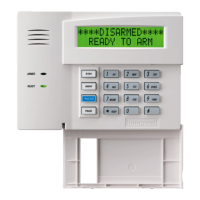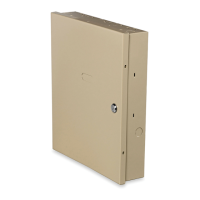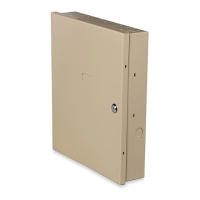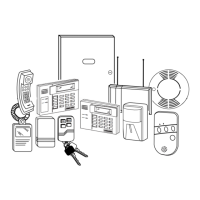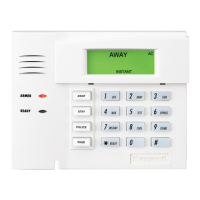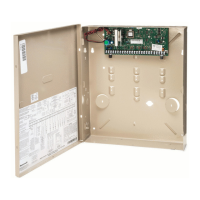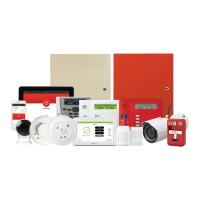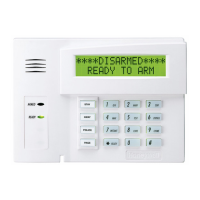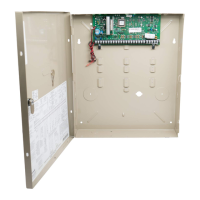System Security Codes
The systems provides one Installer code, one System Master code, plus a set of other user codes intended for
other users of the system. These codes can each be assigned one of 5 authority levels, which determine the
functions each code can perform as listed in the table below.
Number of Codes: Provides 48 security codes (plus Installer code), including one System Master code,
two Partition Master codes, and 45 general user codes.
Authority Levels (can be assigned to users 03-49 only; users 1 and 2 cannot be changed)
Level User No. Functions
Installer 01
(default=4112) perform all security functions except can disarm only if used to arm; can
enter program mode; can change System Master code; cannot assign other user codes
NOTE: For security purposes, the factory default installer code should be changed.
System
Master
02
(default 1234) only one system master code per system; can perform all security
functions, add/delete users in either partition, change system master code, view event
log, set system clock, program keypad macro, program scheduled events, activate output
devices (triggers/relays)
Partition
Master
(default)
P1 = 03
P2 = 33
Same as Master, except add/delete users limited to assigned partition only, (these
users can be assigned different authority levels, if desired; any user can be assigned
the partition master authority level)
0-User 03-49
perform security functions (arm, disarm, etc.) only; cannot add/delete users, view event
log, set system clock or program scheduled events
1-Arm Only see “user” arm system only
2-Guest see “user” can disarm the system only if it was used to arm the system
3-Duress see “user”
performs security functions, but also silently sends a duress message to the central
station; reports as duress code user number.
4-Partition
Master
see “user”
See Partition Master paragraph above; used to assign other user numbers as partition
masters
Refer to the user guide for procedures on adding/deleting security codes and changing user attributes.
The following is a brief description of how to add users and user codes.
Changing the System Master code...
Using Installer code: Installer code + [8] + 02 + new code
Using current System Master code: System Master code + [8] + 02 + new code + new code again
Adding a User: Master code + [8] + 2-digit user no. + user’s code
Deleting a User: Master code + [8] + 2-digit user no. + [#] [0]
Assigning Attributes: Master code + [8] + 2-digit user no. + [#] [attribute no.] + value
Attributes: Values
1 = Authority Level 0-4 (see Authority Level table above)
2 = Access Group 0-8 (0 = not assigned to a group)
3 = Active Partition(s) 1, 2, 3 (common)
for this user; Enter partitions consecutively if more than one and press [#] to
end the entries.
4 = RF Zone No. Assigns user number to button type zone for arm/disarm (keyfob
must be enrolled in system first; see Wireless Key
Templates section).
Deactivating a key fob: You can deactivate the
arming/disarming functions for a key fob (ex. if lost or stolen) by
deleting the associated key fob user. See “Delete a User” above.
Other key fob functions such as panic or device activation (if
programmed) remain active. To fully remove the programming for
a key fob, delete the zone(s) associated with the keyfob functions.
IMPORTANT SECURITY NOTICE
Please inform the User about the security importance of their key fob, and what to do if it is lost.
Explain that the key fob is similar to their keys or access card. If lost or stolen, another person can
compromise their security system. They should immediately notify the Dealer/Installer of a lost or stolen
key fob. The Dealer/Installer will then remove the key fob programming from the security system.
5 = Open/Close Paging 1 for yes, 0 for no
Installation and Setup Guide
6-4

